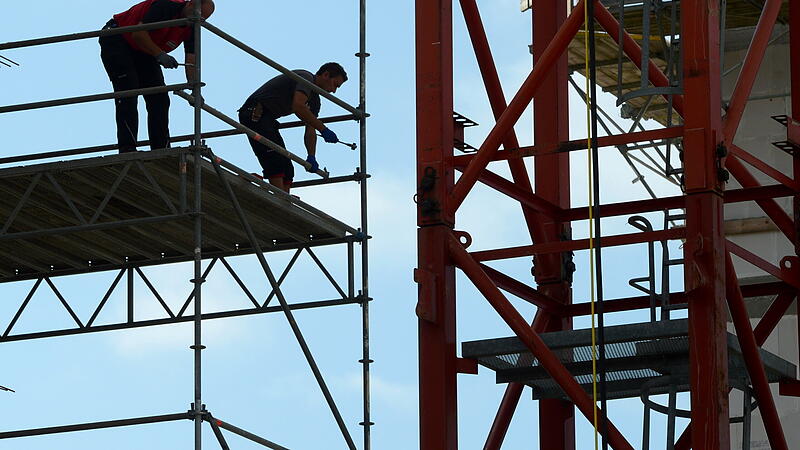Image: APA/dpa/unknown
According to economists, experts and the construction industry, housing construction in Germany is threatened with years of misery unless conditions are fundamentally improved. The reason is that the rapid increase in construction costs makes privately financed housing unprofitable for many property developers. In order to recover costs, the square meter rent for a new apartment would currently have to be around 18 euros, estimates the Kiel working group for contemporary construction (Arge).
According to the consortium’s calculations, the Germany-wide median value for the construction of one square meter of living space – including land costs – was 5148 euros in the first quarter, currently estimated at around 5200 euros, as the architect Timo Gniechwitz, who works for the consortium, says. The working group is one of the leading building research institutions in Germany. Even away from Munich or Frankfurt, the profitability threshold has reached a level that was scarcely imaginable just a few years ago. According to calculations by local housing companies, it is between EUR 16.50 and EUR 18 per square meter in Nuremberg, EUR 18.30 in Forchheim in Upper Franconia and EUR 18.50 in Kempten in the Allgäu.
“Building is simply too expensive,” comments Ludwig Dorffmeister, the construction and real estate specialist at the Munich Ifo Institute. “In May, construction prices for conventional new residential construction were 36 percent higher than in early summer 2020.” Housing companies often put projects on hold “because the rent that would actually be required for this would overwhelm the future residents financially,” says Dorffmeister. At the same time, the federal government has severely restricted its new construction funding since 2022. He expects further market losses.
In contrast to the state-subsidized construction of social housing, privately financed housing should be self-supporting, even if there are a large number of subsidy programs. But now many of these housing projects are no longer profitable. The Federal Association of Housing and Real Estate Companies (GdW) expects only 214,000 new apartments for 2024, the federal government’s target is 400,000.
“Companies are doing everything they can to keep their staff,” says Felix Pakleppa, general manager at the Central Association of the German Construction Industry (ZDB). “But we are aware that short-time work is increasing among housing construction companies.” The negative trend in building permits and incoming orders is a “dark omen”.
“Without adequate subsidy budgets and better building conditions such as a higher interest rate support, a lower VAT rate or a low real estate transfer tax, we will see a serious slump in the residential construction sector,” predicts Pakleppa.
Source: Nachrichten




